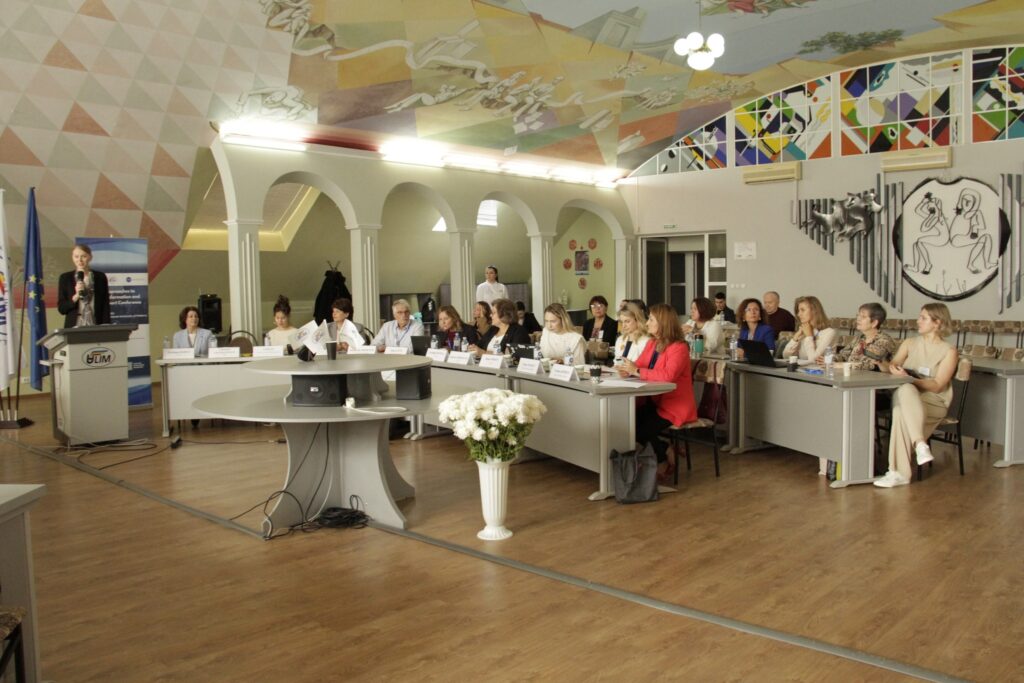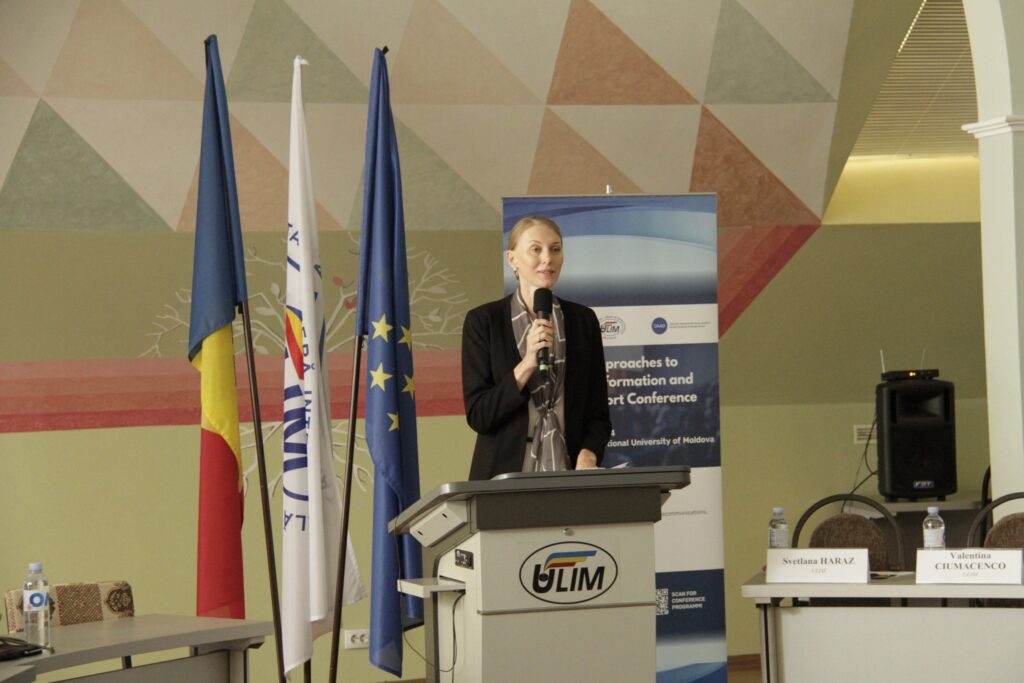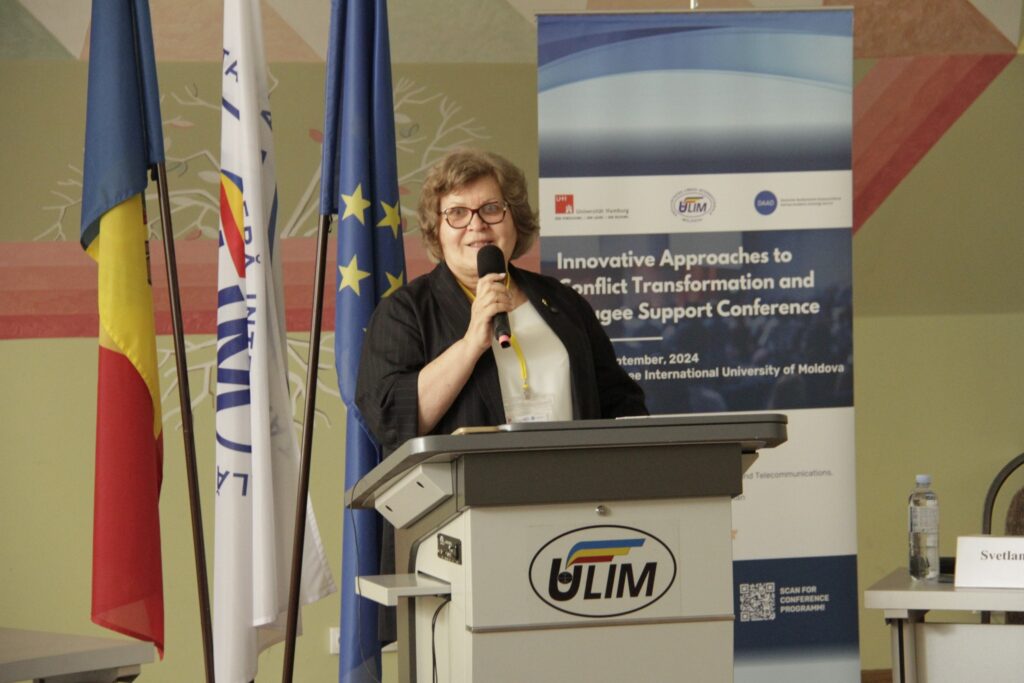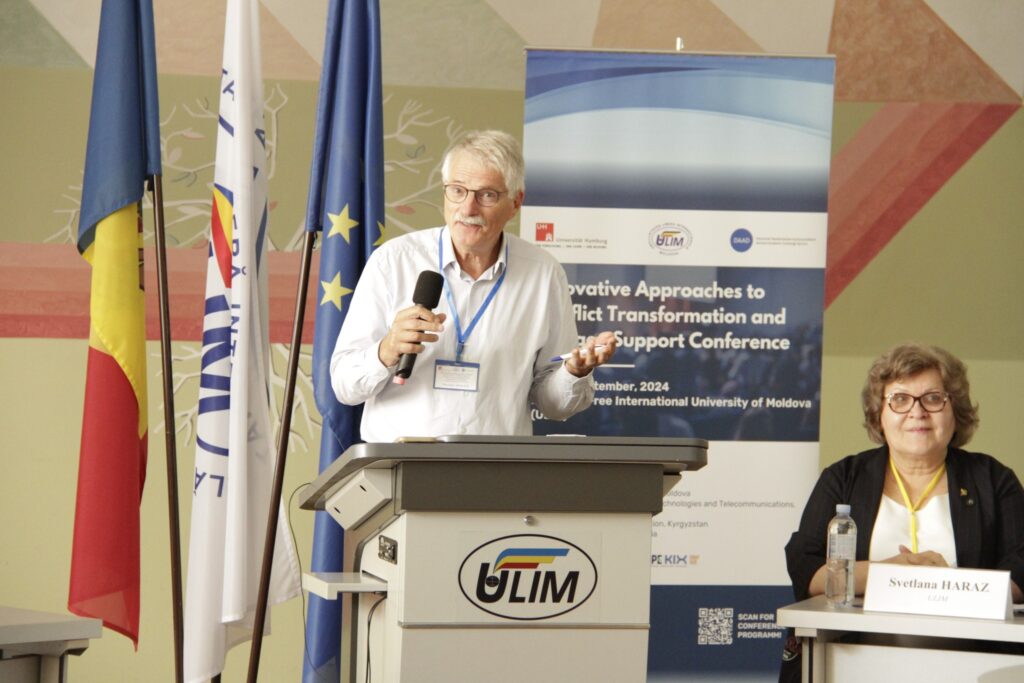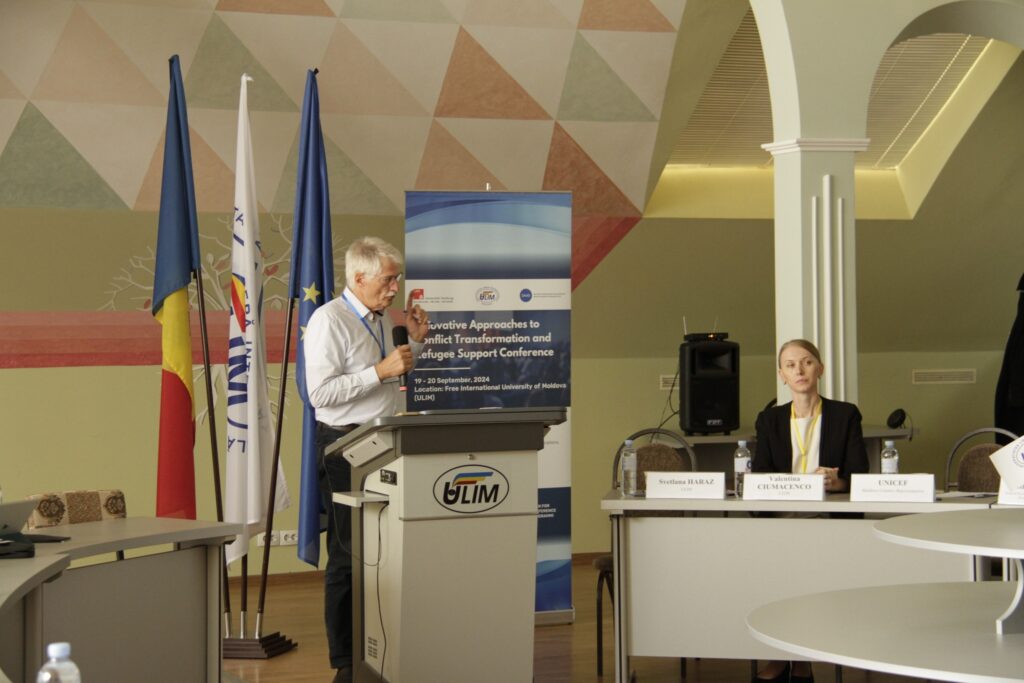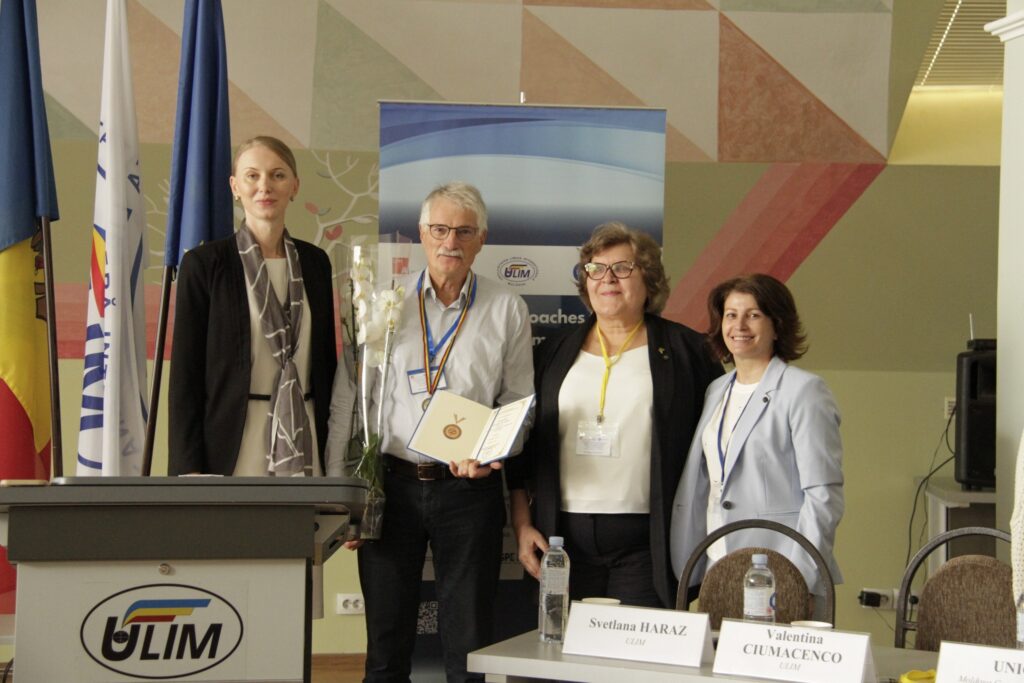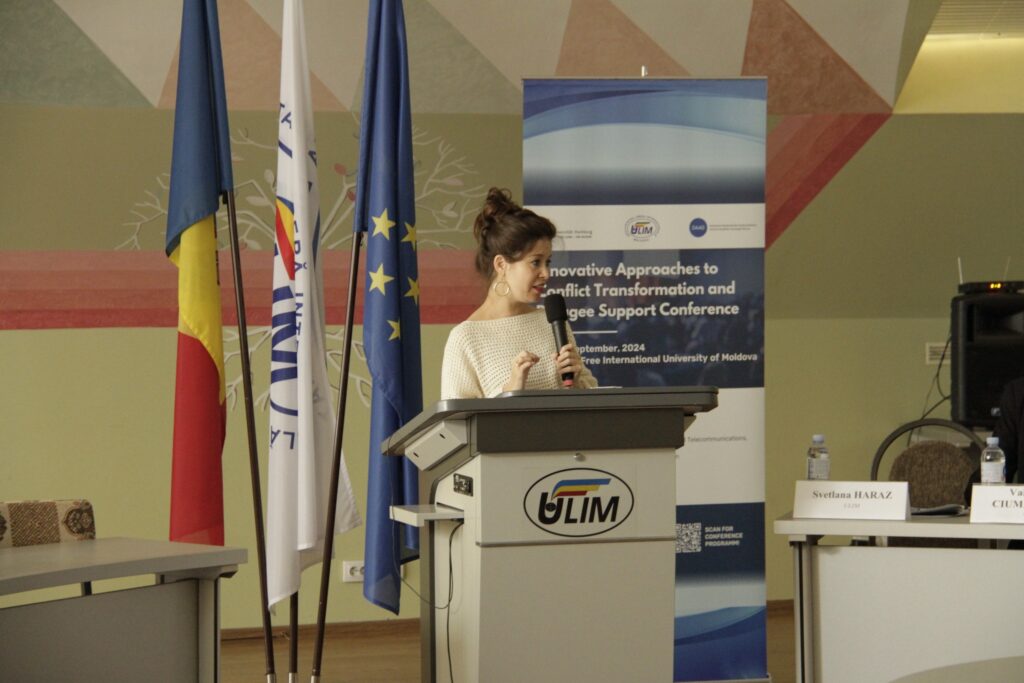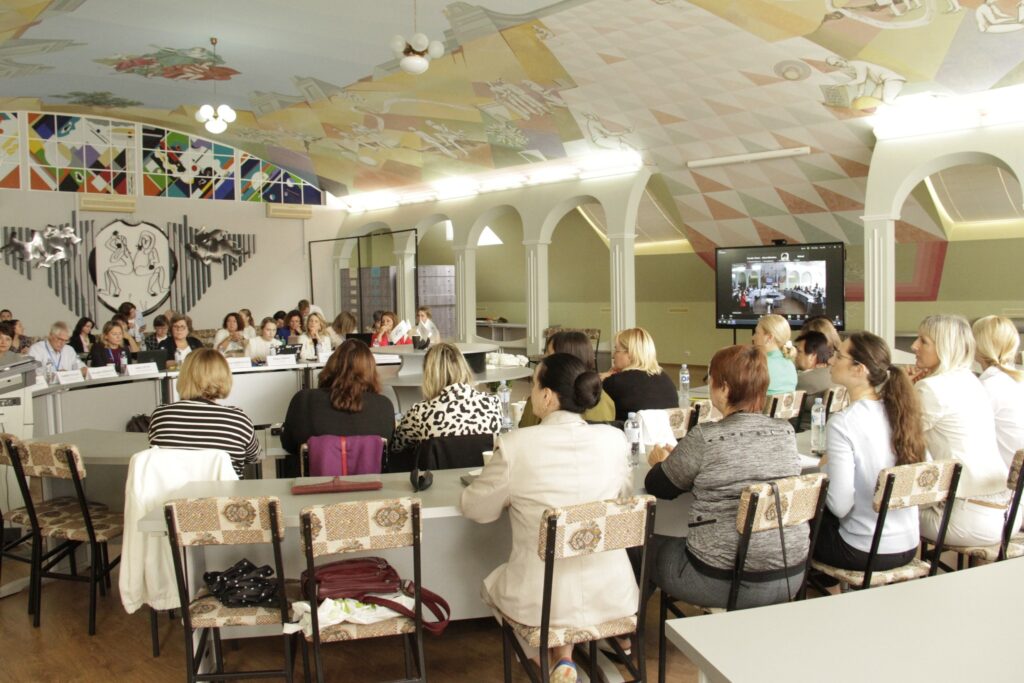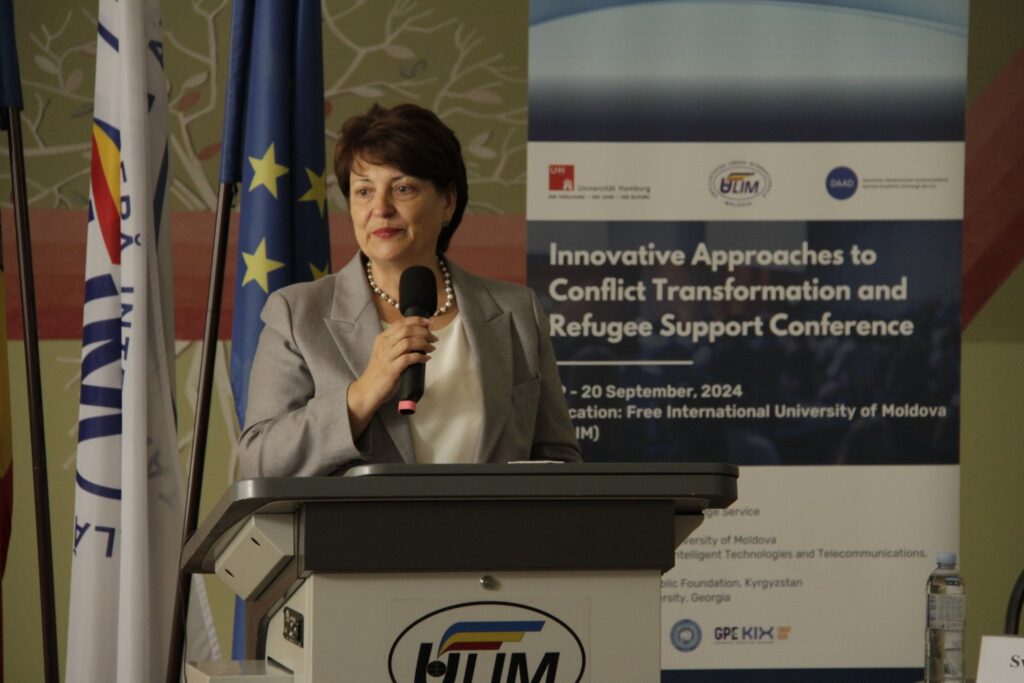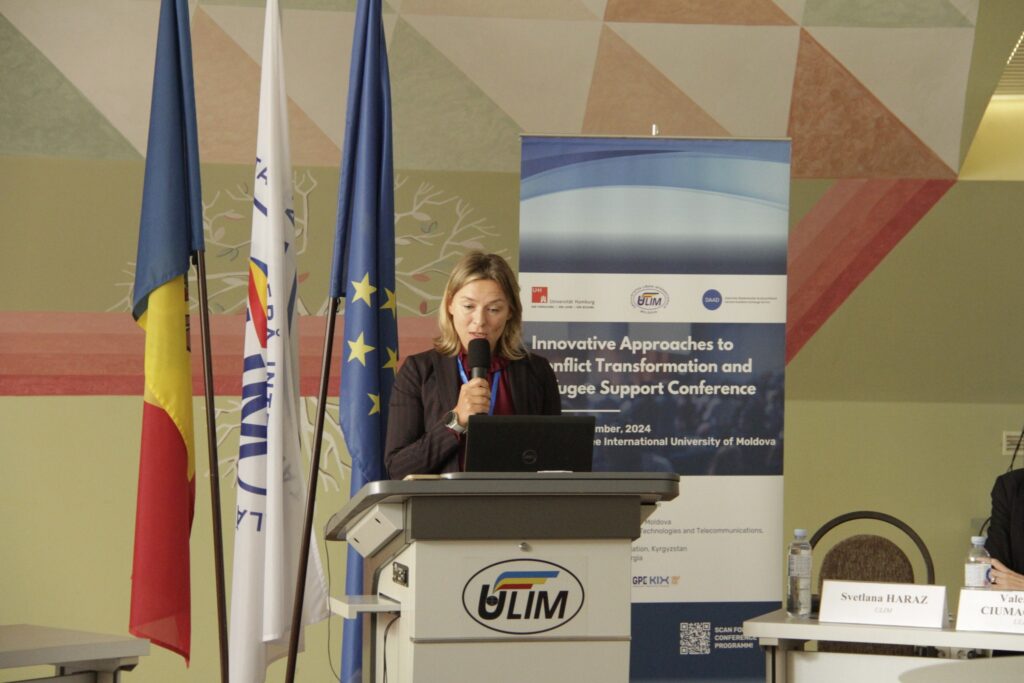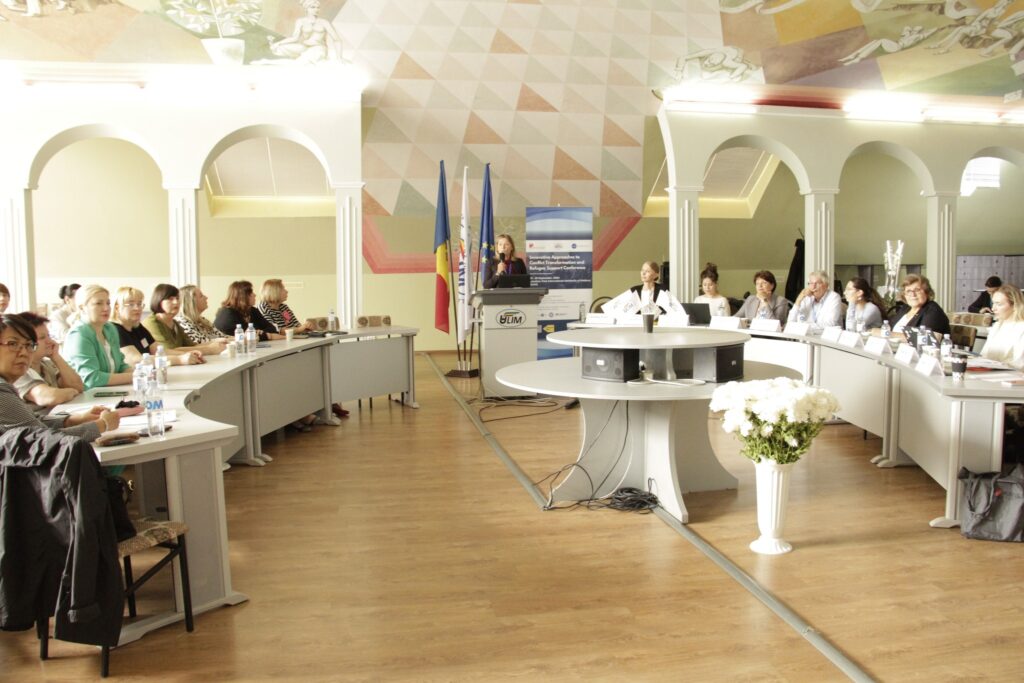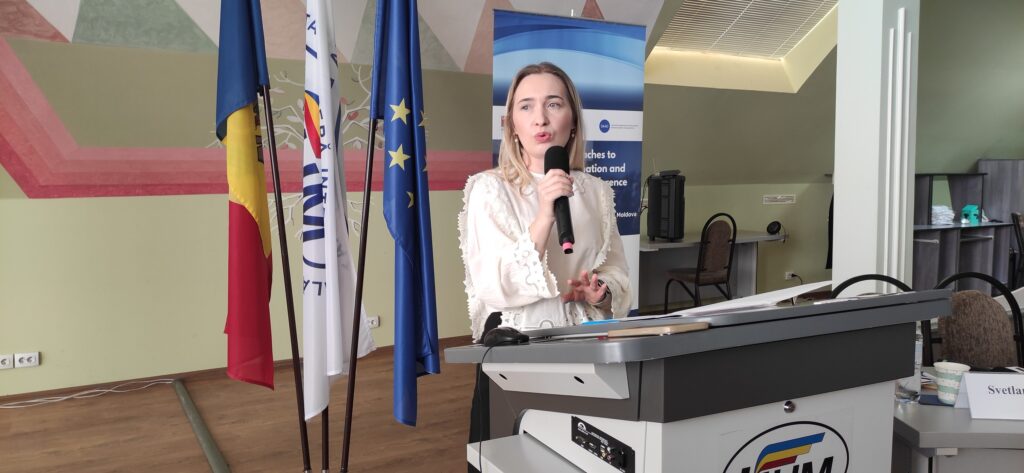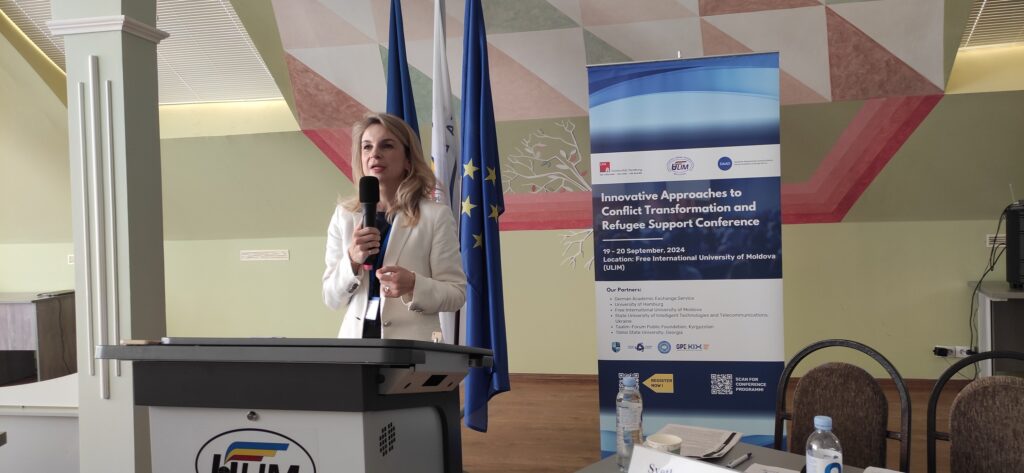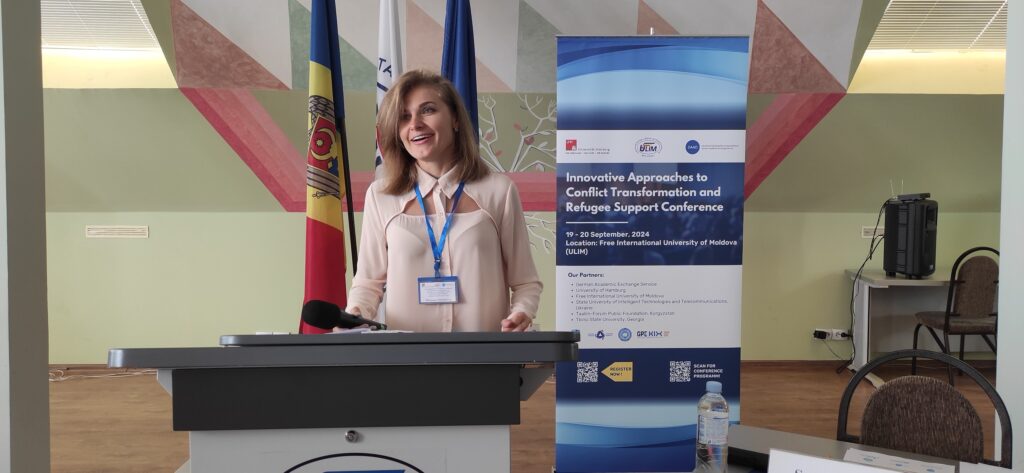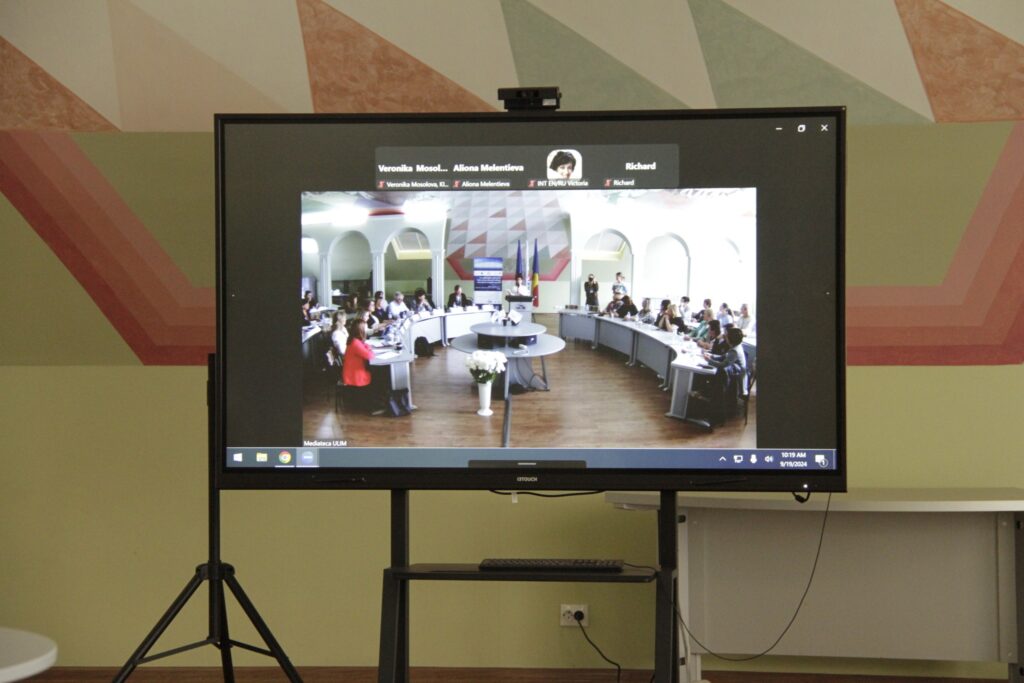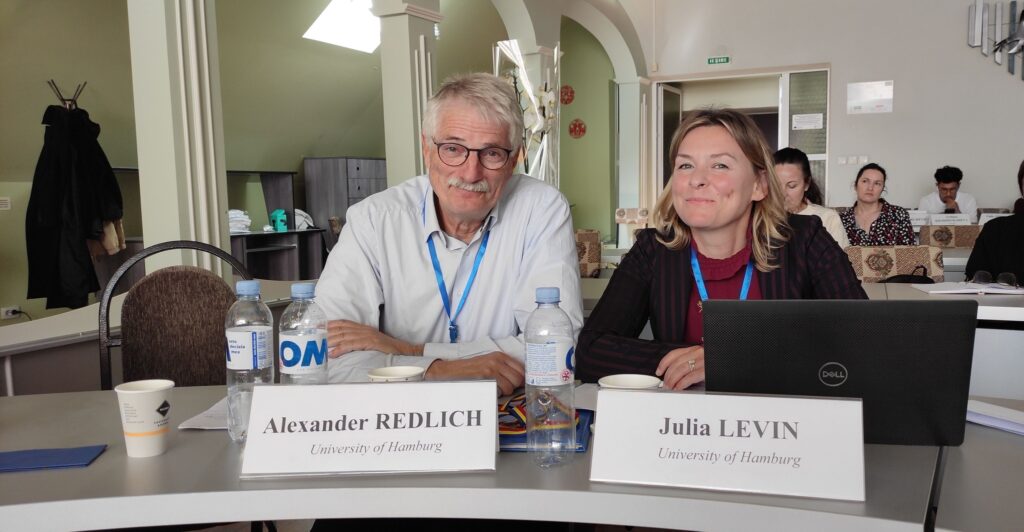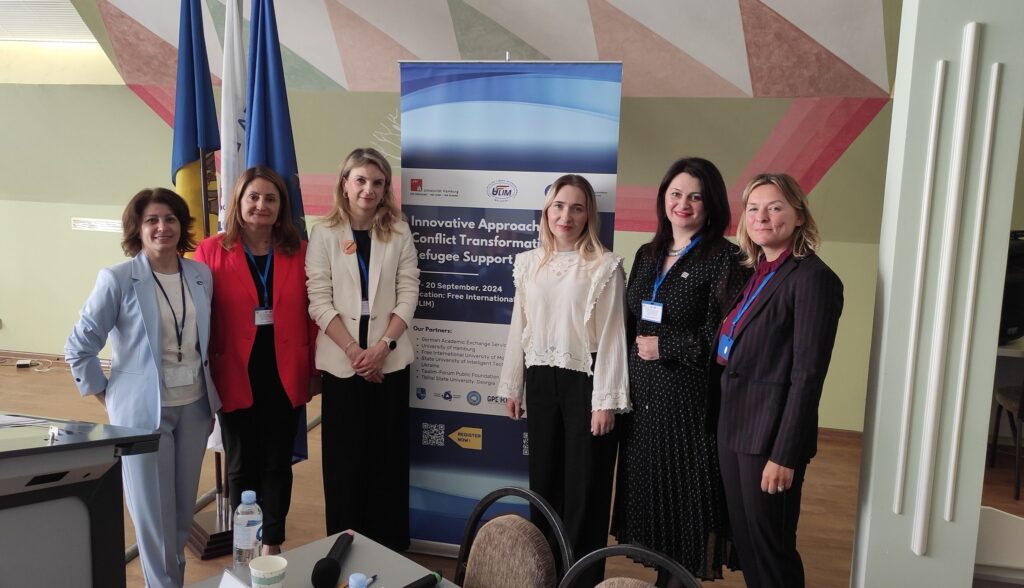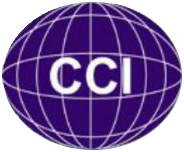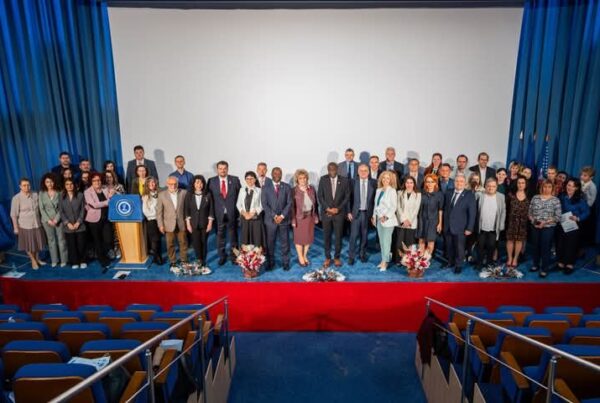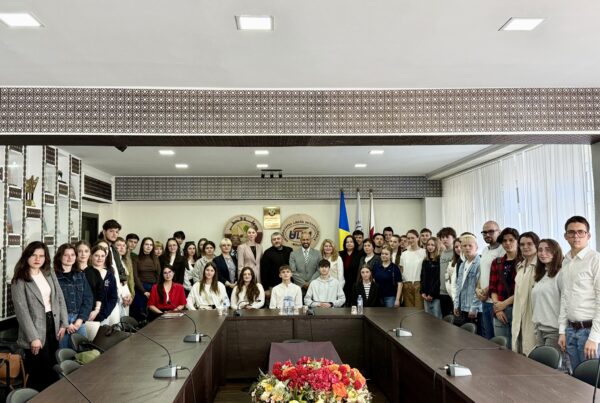On September 19-20, the Free International University of Moldova hosted the international scientific and practical conference, “Innovative Approaches to Conflict Transformation and Refugee Support.” The event took place as part of the international project “Navigating the Digital Space – Conflict-Sensitive Support Strategies for Refugee Adolescents,” financially supported by the German Academic Exchange Service (DAAD) with funds from the German Federal Foreign Office.
The conference brought together project partners from five countries: Germany, Moldova, Ukraine, Kyrgyzstan, and Georgia. These included the University of Hamburg, the Free International University of Moldova, the State University of Intelligent Technologies and Communications of Ukraine, the Taalim Forum Foundation from Kyrgyzstan, Tbilisi State University, and the KIX Europe, Middle East, and North Africa, Asia and Pacific Hub.
Professor Alexander Redlich (University of Hamburg), international coordinator Julia Levin (University of Hamburg), and local coordinators Svetlana Haraz (ULIM) and Svetlana Hadzhyradyeva (University of Ukraine) ensured the smooth running of the event, which addressed major challenges in the digital space, focusing on issues such as cyberbullying and disinformation affecting refugee adolescents and youth. The conference also promoted innovative strategies for conflict transformation in both physical and digital environments.
The event gathered government officials, researchers, civil society members, private sector representatives, and international donors, who shared experiences, research results, and best practices in preventing and resolving digital conflicts. Key topics included cyberbullying prevention, cybersecurity, and combating disinformation.
The official opening of the conference was inaugurated by Dr. Valentina Ciumacenco, Vice-Rector for International Relations at ULIM, with an institutional message on behalf of the Senate and the Rectorate addressed to the partners and all participants. She also took on the role of moderator for the session dedicated to welcome messages from special guests, including Mrs. Flore Rossi, Child Protection Specialist at UNICEF Moldova, and Mrs. Ludmila Pavlov, Secretary General of the Ministry of Education and Research of the Republic of Moldova.
The keynote speech of the conference, titled “Navigating Digital Conflicts: Perspectives from Germany, Georgia, Kyrgyzstan, Moldova, and Ukraine,” was delivered by Professor Alexander Redlich and Julia Levin from the University of Hamburg. The discussions with participants were moderated by Mrs. Svetlana Rusnac, Dean of the Faculty of Social Sciences and Education at ULIM.
During the conference, participants shared experiences and best practices presented by civil society representatives and UNICEF, such as Diana Miron, Adolescent Development Officer at UNICEF Moldova, Daniela Sîmboteanu, President of CNPAC, Elena Madan, Director of Terre des Hommes Moldova, and Teodora Rebeja, Program Manager at Terre des Hommes Moldova.
The conference also highlighted the active participation of students from the Faculty of Social Sciences and Education at ULIM in academic projects like the SURE Program (Students for a United and Resilient Europe). Daniel Grițcu and a team of students who conducted research on “The online information competence of adolescents in the issues of war refugees: The case of Ukraine (MediaMind Unity),” under the guidance of Iulia Iurchevici, shared the results of their research with the conference participants.
The conference proved to be a valuable platform for exchanging ideas and best practices, contributing to the strengthening of interdisciplinary and international collaboration in conflict transformation and refugee support. The event opened new opportunities for collaboration and the development of academic projects.
